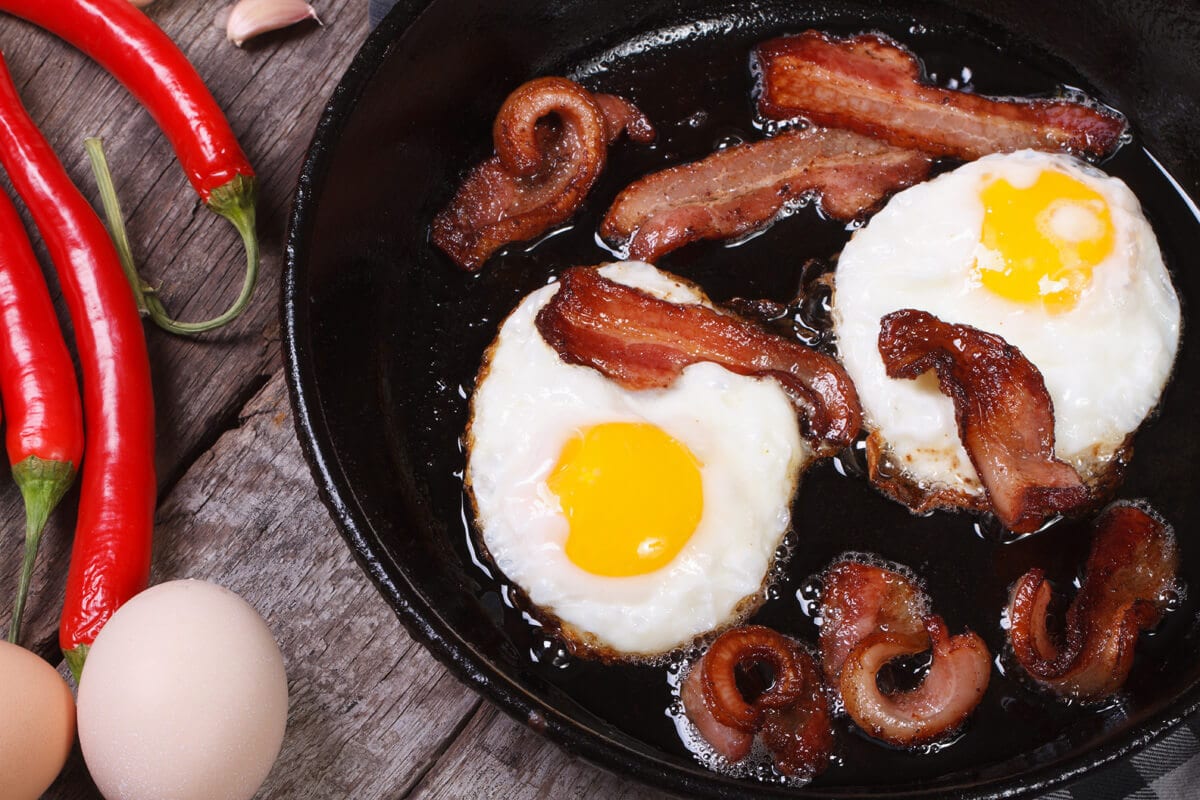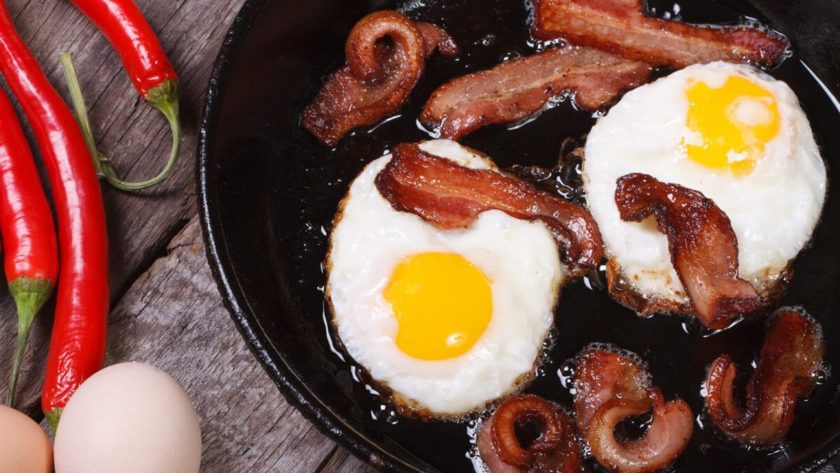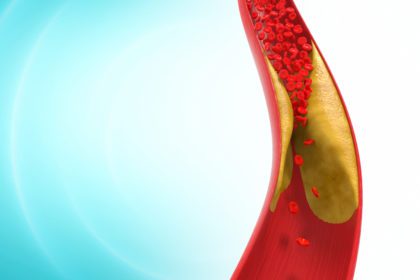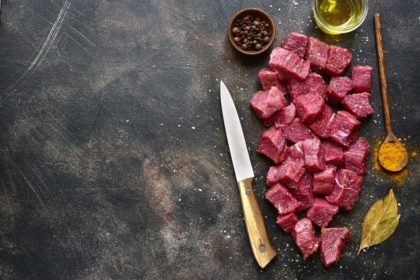UPDATE: The Paleo Diet or “Caveman Diet” has grown in popularity with claims that it helps with heart and gut health, but does it really?
What Is the Paleo Diet?
Paleo is short for Paleolithic and this diet relates to that era (2.5 million to 10,000 years ago). It is also called the “Hunter-Gatherer Diet” or “Stone Age Diet”.
Proponents of the Paleo diet believe humans should only eat food that our caveman ancestors ate because they think humans have not adapted to a modern diet which includes eating agricultural products.
Paleo diet advocates believe man’s diet should be based on these principles:
- Include meat, pork, poultry, bacon, fish, eggs, nuts, limited fruit, and vegetables
- Exclude highly processed foods/oils and farmed products — i.e., whole grains, legumes (beans, lentils, peas, and tofu), corn, potatoes, refined sugar, and dairy.
A Typical Paleo Diet Menu
- Breakfast: Bacon and eggs + vegetables fried in coconut oil + fruit
- Lunch: Fried pork or barbecued steak + vegetables
- Dinner: Salmon fried in grass-fed butter + vegetables
- Snacks: Hard-boiled eggs, homemade beef jerky, fruit, nuts, or veggies

The Health Claim
Paleo advocates claim that the diet is better for weight loss, heart and gut health, but there are no long-term clinical studies to support this claim.
Since the Paleo diet eliminates grains, dairy, and legume protein sources, it emphasizes the intake of animal-based proteins.

Paleo Link to Heart Disease
Eating a diet rich in animal-based protein is problematic for two reasons:
- They are high in saturated fat (about TWICE the recommended levels) which increases inflammation and risk of kidney and heart disease, as well as certain cancers.
- They increase concentrations of TMAO (trimethylamine-N-oxide)* — a key blood biomarker linked closely to cardiovascular disease. TMAO is produced in the gut.
New research published in the European Journal of Nutrition found people that followed the Paleo diet for over a year had TWICE the amount of TMAO in their blood. They attribute this to the low levels of carbohydrate intake.
Another 2017 study published in the Journal of the American Heart Association found that elevated levels of TMAO:
- Increased risk of death by 63%
- Increased risk for a major cardiovascular event by 62%
Even if you aren’t “officially” following the Paleo diet, but eat a diet heavy in animal-based protein and few whole grains, you are vulnerable to the same negative Paleo diet health effects.
NOTE: Red meat, egg yolks, processed meat, dairy products (particularly high-fat dairy), salt-water fish, and supplements are rich in choline, lecithin, and carnitine, and therefore, are a potential source of TMAO.
According to researchers at the Cleveland Clinic*, choline is associated with blood-clotting events, such as heart attack and stroke.
Unhealthy Gut
Although Paleo advocates claim the diet is good for their gut, the research suggests otherwise.
Whole grains are vital to having healthy gut microbiome (trillions of microorganisms or “microbes”, such as bacteria, fungi, and viruses) that live primarily in the large intestine (cecum)
When microbes are out of balance, it can lead to weight gain, high blood sugar, high cholesterol, and other disorders. The elimination of whole grains had an adverse effect.
Whole grains help produce healthy gut bacteria which ward off chronic diseases. Those in the Paleo group had two potentially harmful issues:
- Lower levels of beneficial bacteria
- Elevated levels of TMAO
The Ideal Eating Plan
The ideal eating plan is more inclusive than exclusive. It doesn’t exclude whole food groups, such as whole grains. Being in a constant state of self-restraint results in experiencing insatiable cravings.
Your body requires both carbohydrates and fats to perform key metabolic functions.
When you restrict macronutrients like carbohydrates and/or fat, your body rebels. It releases hormones that cause you to crave those particular macronutrients.
Remember… When you restrict essential nutrients, your body will “fight it” until no amount of “will power” will keep you from eating it.

![]() Karen’s Fit Tip: The Paleo diet that’s high in saturated fat and low in carbohydrates may be harmful to long-term health.
Karen’s Fit Tip: The Paleo diet that’s high in saturated fat and low in carbohydrates may be harmful to long-term health.
Follow a more plant-based diet that includes plenty of nutrient-dense fruits and vegetables, nuts/seeds, fiber-rich whole grains, and legumes.
Similar low-carb diets, such as the Ketogenic (or Keto) Diet, may also increase risk for heart disease.





